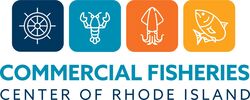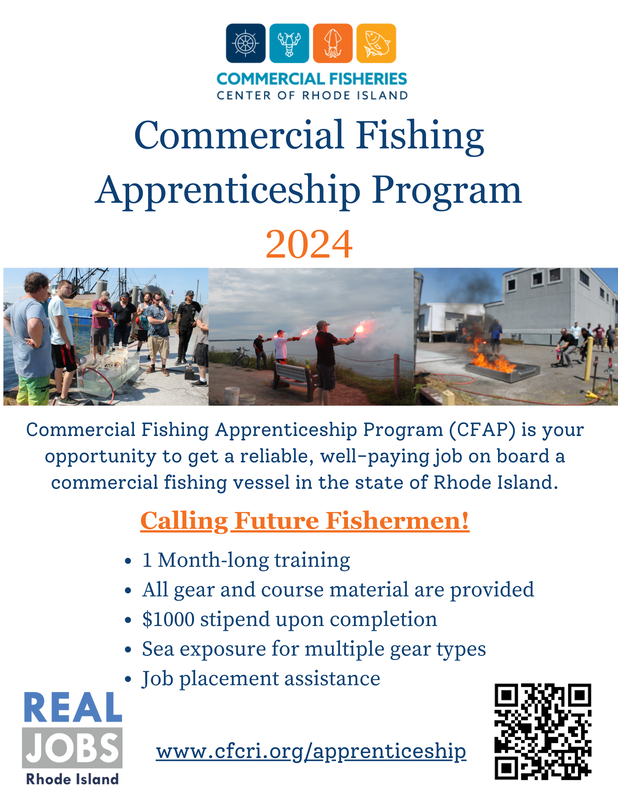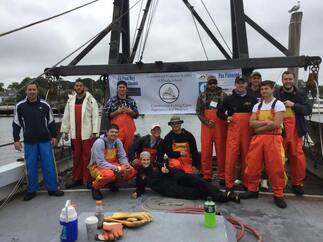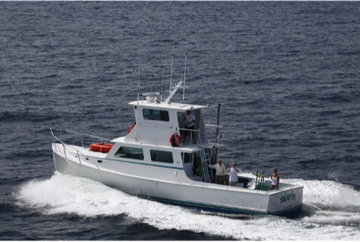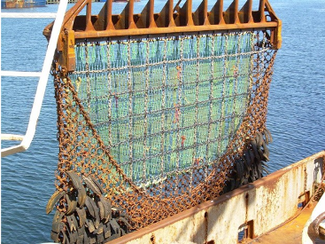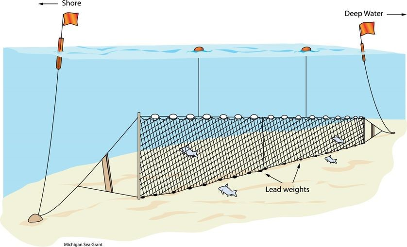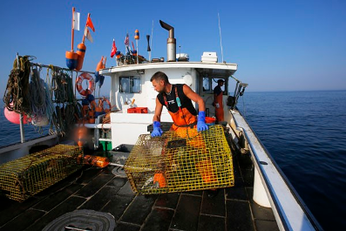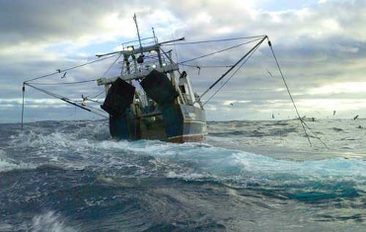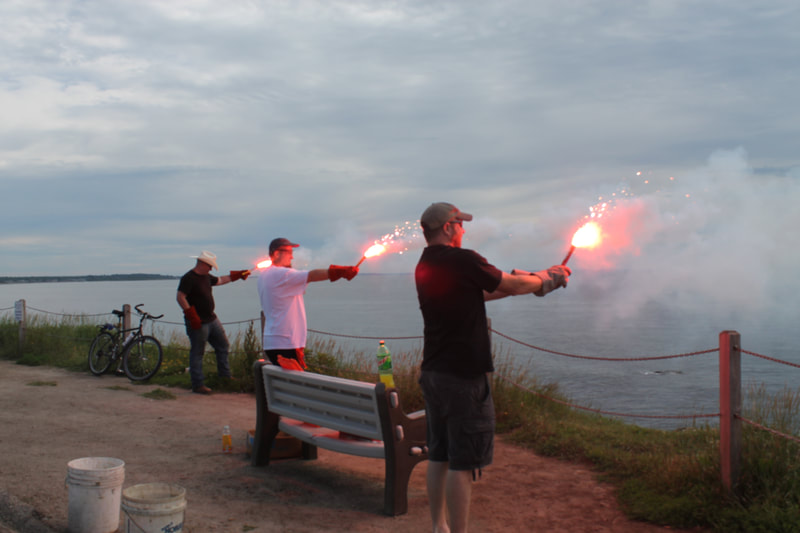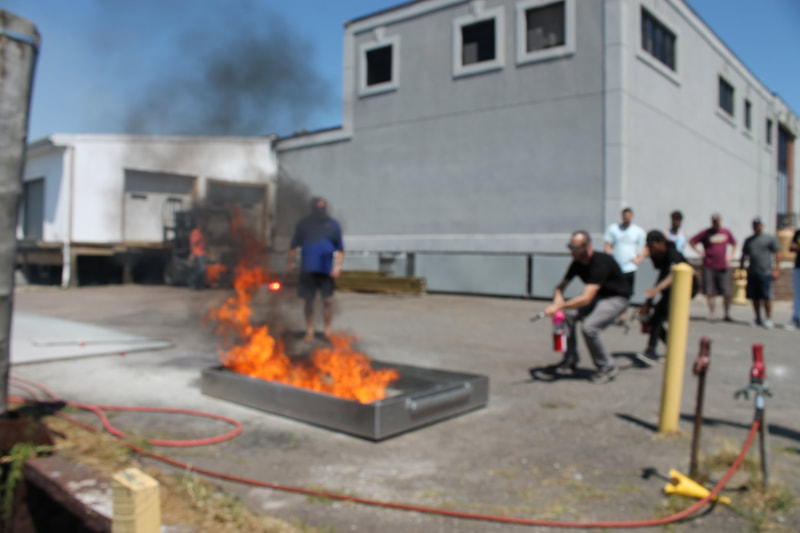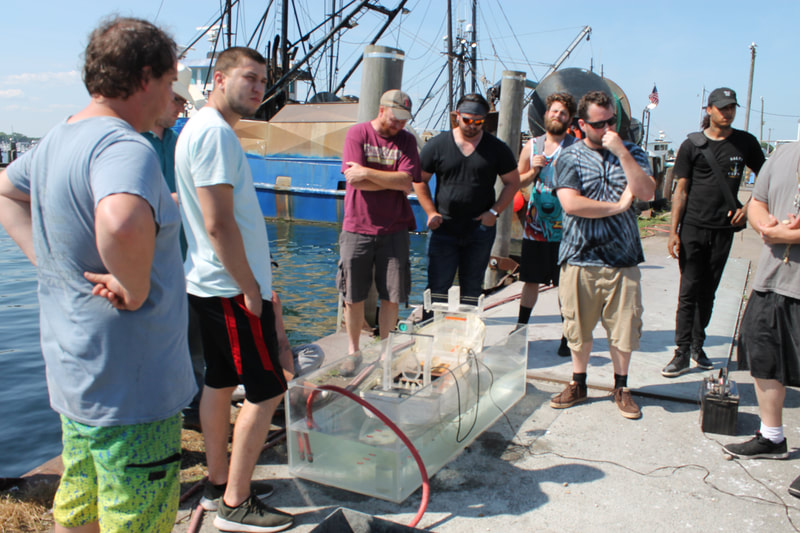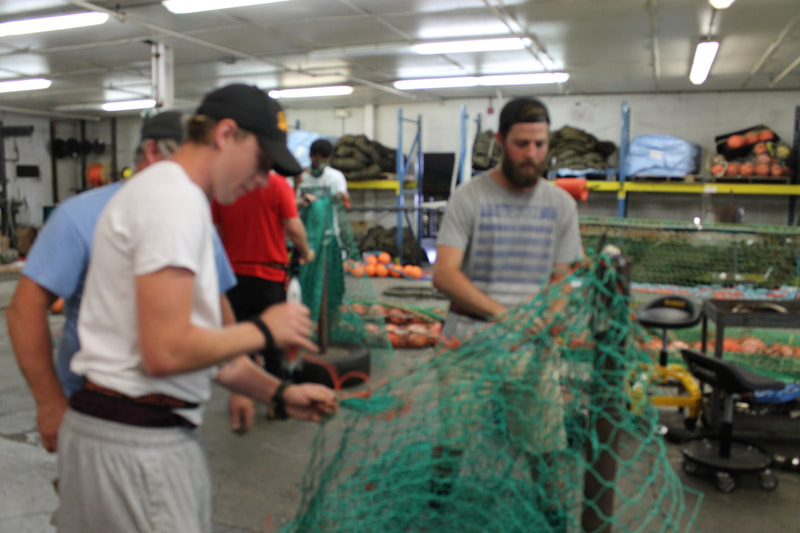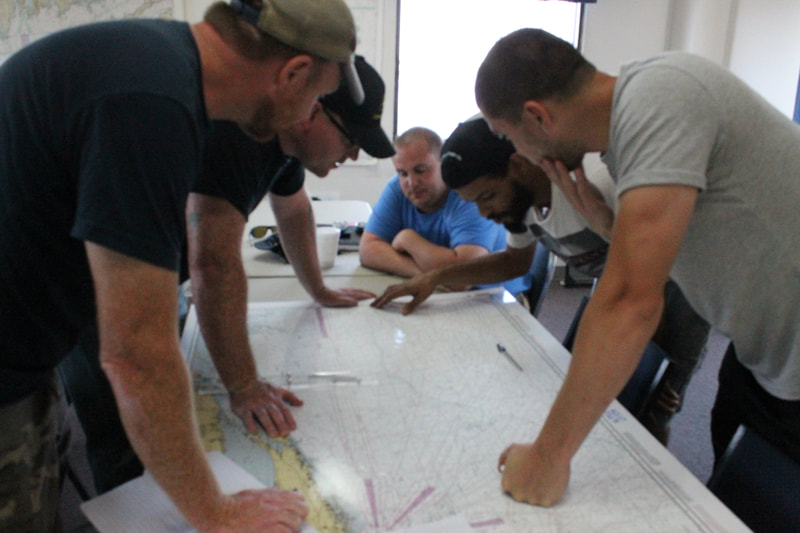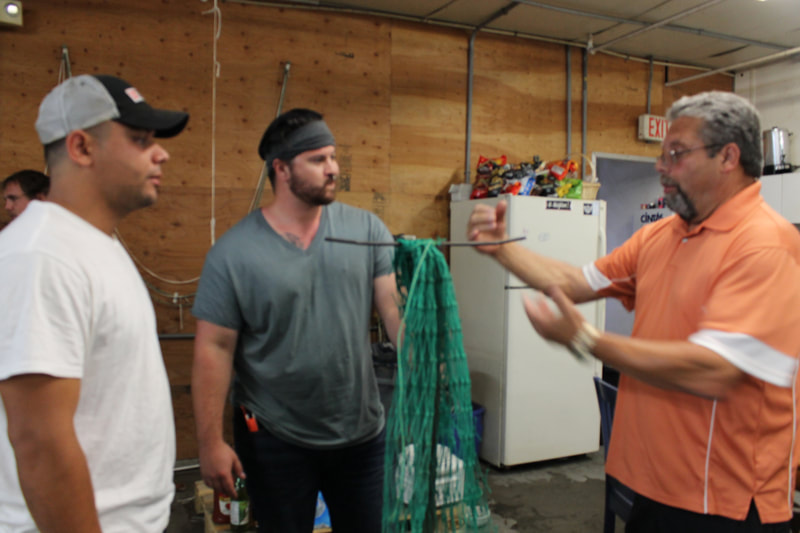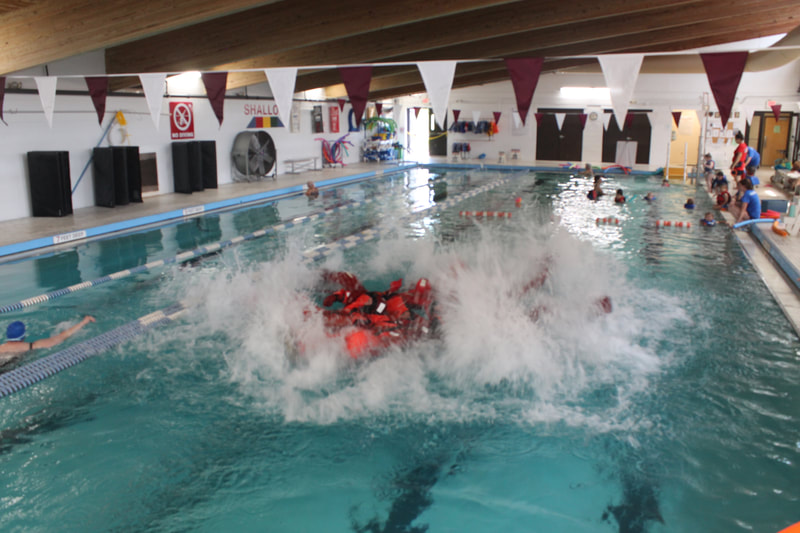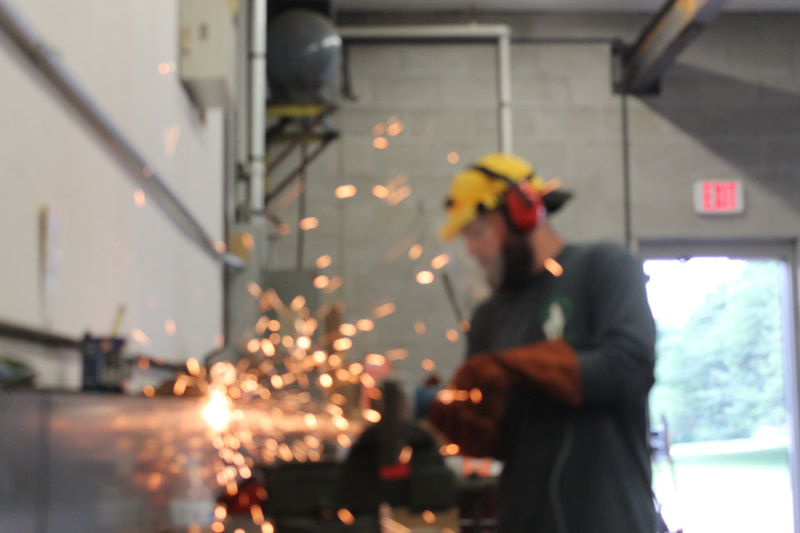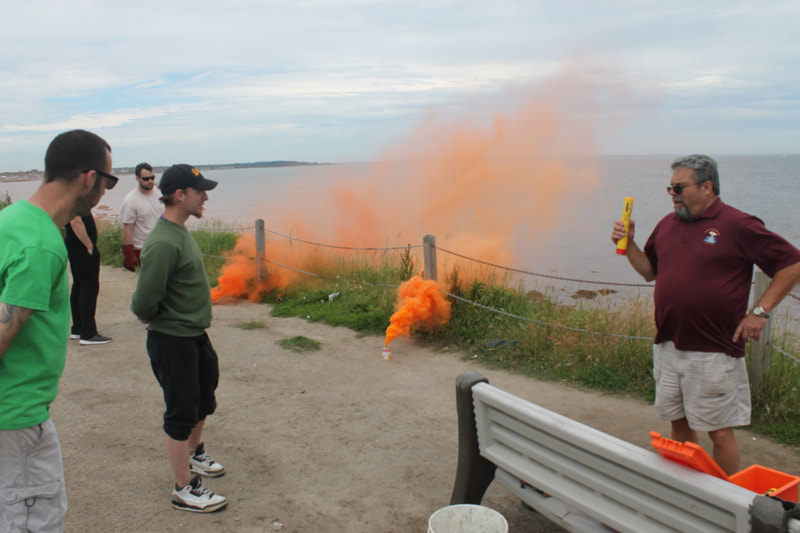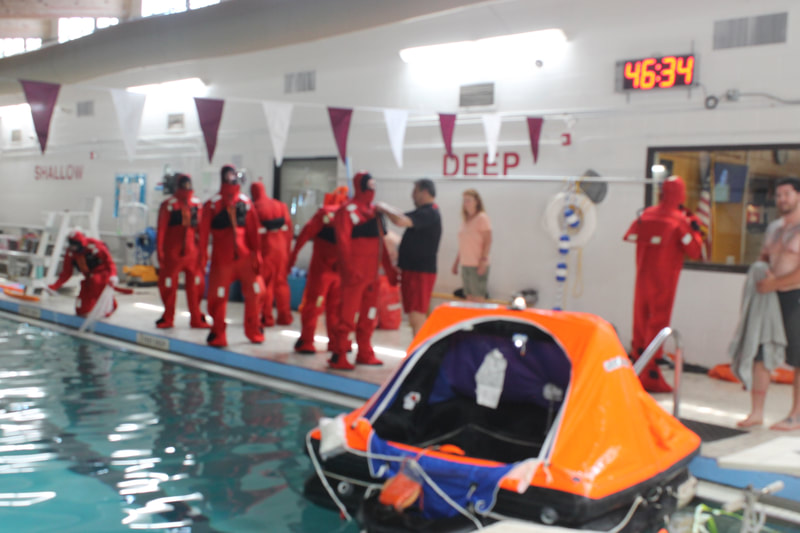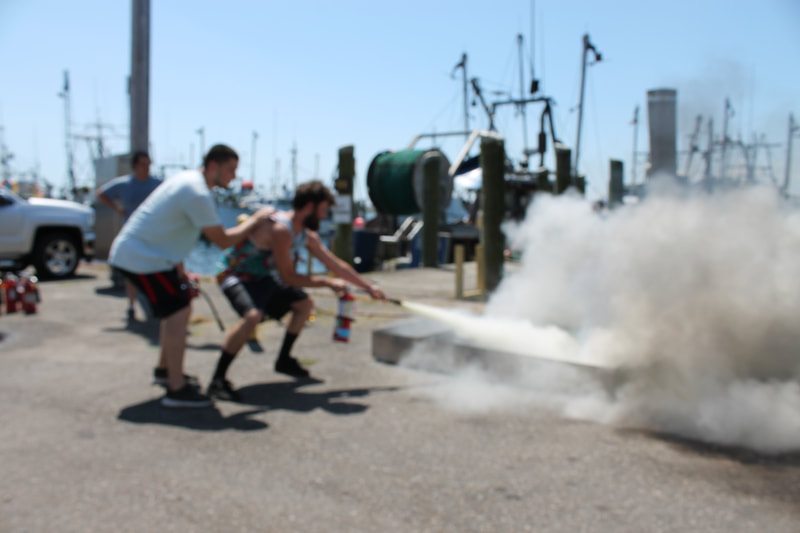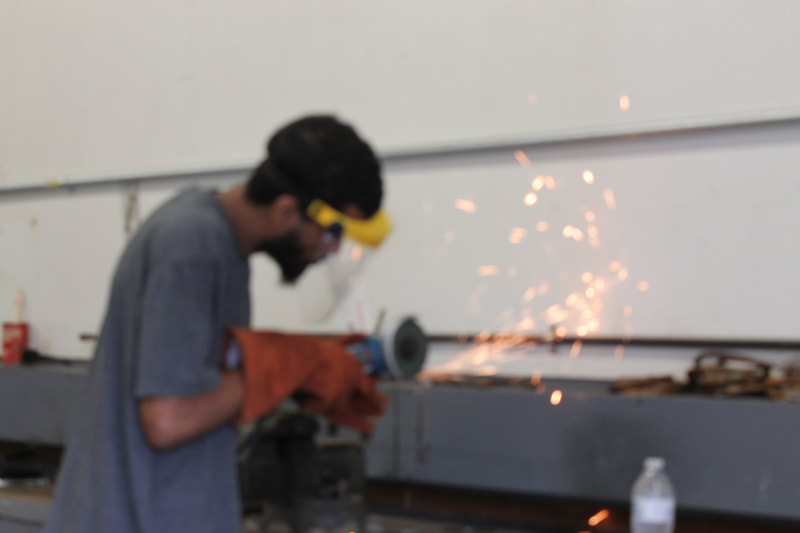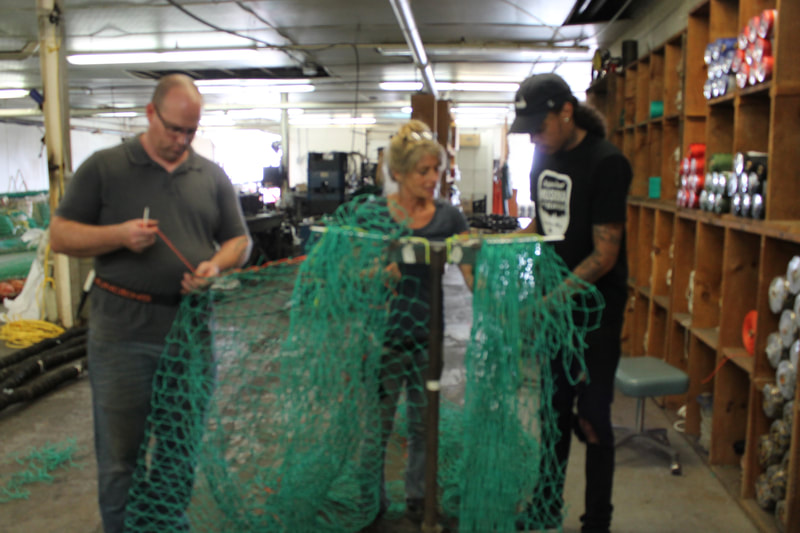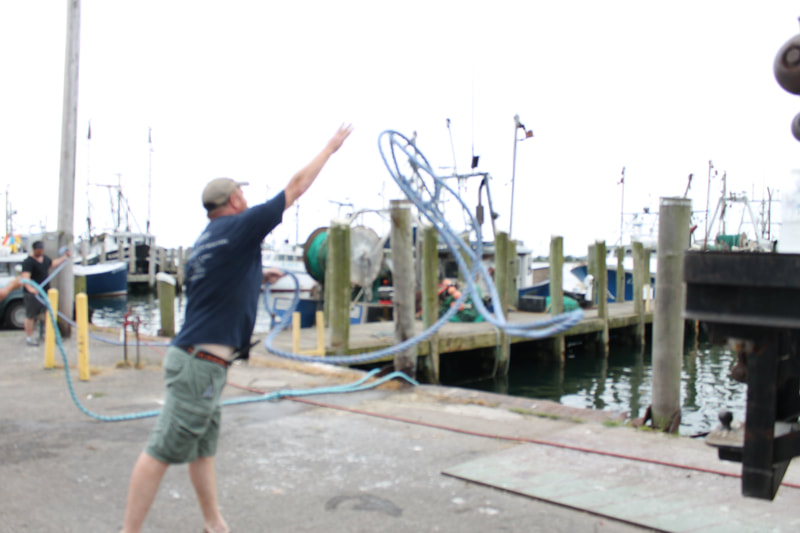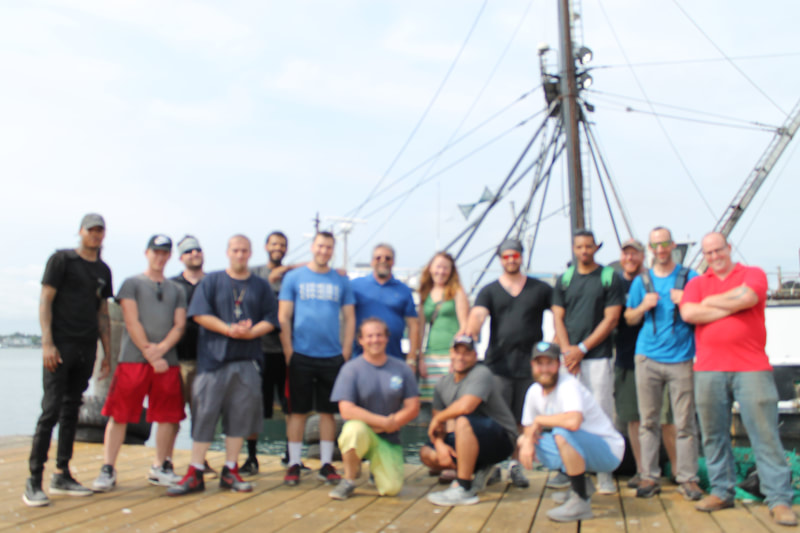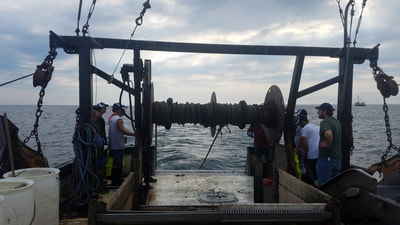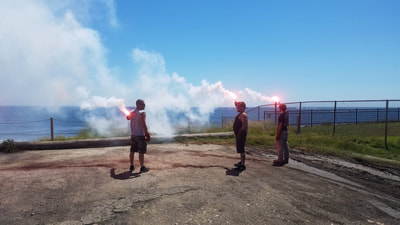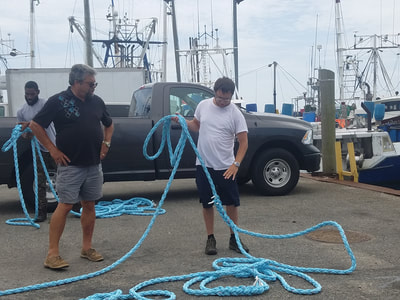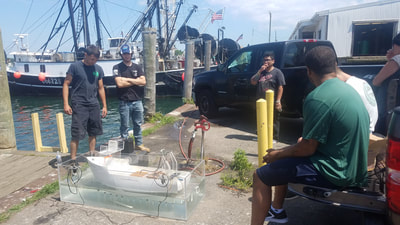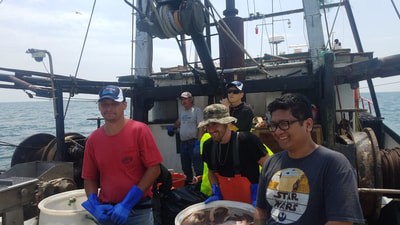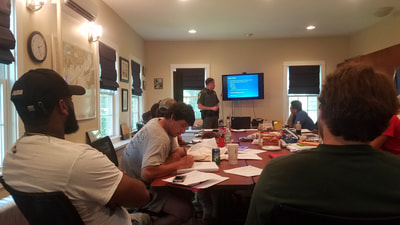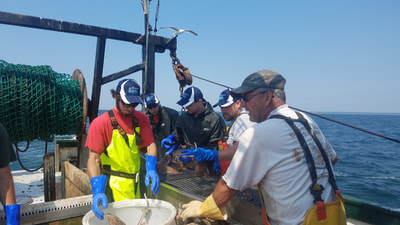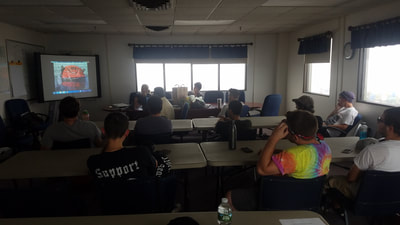The application for the 2024 Commercial Fishing Apprenticeship Program is closed
|
Commercial Fishing Apprenticeship Program (CFAP) is a crew training program designed and offered by the East Farm Commercial Fisheries Center of Rhode Island and in cooperation with the University of Rhode Island, commercial fishermen, and the supporting shoreside businesses of Point Judith.
The 2024 Program will begin on May 28th and end late June 2024. After the initial training, apprentices will be given opportunities to work as crew members on RI vessels to begin on-the-job learning. The training provides essential knowledge and skills to hard-working, self-motivated, and dependable men and women. Upon completion of the month-long training, participants will have the potential to become the next generation of conservation-minded fishermen and secure full-time employment aboard local commercial fishing vessels. The program consists of hands-on, classroom-based training sessions, and at-sea training. Hands-on components will include safety training, seamanship, navigation, basic vessel maintenance, gear design and repair. Classroom sessions will include Fishing as a Business, Rhode Island Fisheries Management and Regulations, Cooperative Research, Data Collection, Species Identification, and the Ethics of Responsible Fishing Practices. As part of the program, apprentices get 3 days at sea and get to experience different types of fishing and gear types. Training locations are both Point Judith and Kingston, Rhode Island. CFAP is fully funded by Real Jobs Rhode Island. |
CFCRI Apprenticeship Video by Working Nation
Who Is Eligible?
- Must be ages 18+
- Must have drivers license and reliable form of transportation
- Must pass background check and drug test
- Must be willing to commit to the full month-long program
- Most importantly, must be interested in making a career in commercial fishing
What is Involved and Provided?
- Commitment of month-long training program (Monday-Friday from 8am-5pm)
- Daily one hour lunch break with $25 stipend
- 3 days at sea aboard vessel. Get to select 2 types of fishing experiences (Trawling, lobstering, gillnetting, dredging)
- All gear is provided (boots, foul-weather gear, gloves)
- All course material and books are provided
- Upon full completion of month-long course, you will receive a $1,500 stipend and assistance securing employment on a local vessel
Screening/Self-Assessment: Commercial fishing is a unique and rewarding career. However, it certainly is not for everybody. Fishing may be a good fit for you if…
- You are not prone to seasickness or other motion sickness.
- You have been on the water with seas greater than 3 feet.
- You have prior experience working physical labor jobs.
- You have experience being on boats greater than 20ft.
- You are comfortable working in unfavorable weather conditions.
- You enjoy being part of a team.
- You can lift at least 50lbs.
- You are dependable and have a reliable vehicle.
- You have a driver's license.
- You do not have any physical ailments/injuries.
- You are comfortable with a schedule that frequently changes.
- You are okay with working odd hours of the day and long hours.
- You are okay with being away from home/land for extended periods of time.
- You do not mind getting dirty and smelling of fish & rancid smells.
- You are financially responsible and able to make sure your taxes get filed.
- You are comfortable getting your own health insurance coverage.
Frequently Asked Questions
- What is the schedule like for the program?
- What topics will be covered in the training?
- What happens after the training?
- Where does the training take place?
- How much does this training cost?
- Is housing provided during the training?
- How do I apply?
- Does the training include time at sea on a fishing vessel?
- How much does a fishermen make in a year on average?
- Will I get a degree or certificate?
Commercial Fishing Pathways
Different Types of Fishing Pathways
|
Rod & Reel / Private Charter
|
ScallopingRhode Island is home to a small inshore scallop fleet that operates year round. These vessels are generally 30-60 feet in length and trips last anywhere from 10 hours to 2 days. Scalloping consists of towing a large dredge (pictured above) behind the boat for an hour. During this time a deckhand will spend time picking the deck, shucking scallops, filleting monkfish, and preparing for the dredge to be hauled back. Deckhands in this industry must be well fit, able to stand for hours, and be strong enough to work with the dredge.
|
GillnettingAnother small Rhode Island fleet is the Gillnet fleet. These vessels range in size from 25 to 50 feet in length. The trip length on these vessels is anywhere from 8 hours to 4 days. Gillnetting vessels here in Rhode Island target numerous species including skate, dogfish, monkfish, and fluke. Vessel crew size is usually 2- 4 people. Deckhand responsibilities may include cleaning, net repair, handling fish, and basic vessel maintenance.
|
Lobster / Fish PotsIn Rhode Island we have both an inshore and offshore fleet of lobster boats. The inshore fleet consists of smaller boats ranging from 20 to 50 feet. These boats generally leave the docks early morning between the hours of 3 and 6 and return between the early afternoon and sunset. Many of these boats do not just engage in lobstering, but use other forms of traps to capture fish, crabs, and whelk. The deckhands will be working with bait and stacking heavy traps on deck. Offshore lobstering is a bit different; boats are much larger and trips range from 4 days to a week. These boats do not participate in other fisheries and have a crew of 3 to 6 people. Deckhand responsibilities range from stringing bait, to cooking, cleaning, handling lobsters and fish, and basic vessel maintenance.
|
TrawlingThe largest commercial fishing fleet in Rhode Island is the trawlers. These vessels range in size from 30 to 100 feet and trawl for numerous species depending on the season. As with other fisheries, duration of the trip varies with vessel size. Trips can range from 8 hours to 10 days. On a trawler, crew sizes can also range from a 2 to 6 people. Different species caught can include squid, scup, butterfish, and whiting. Deckhand responsibilities include cooking, cleaning, sorting fish, helping stock the boat, and other basic maintenance needs.
|
Apprenticeship 2019
Apprenticeship 2018
|
Long Version (12 Minutes)
|
Short Version (4 Minutes)
|
